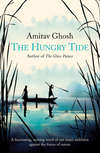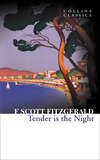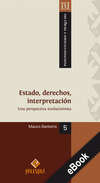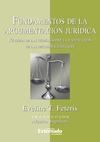Kitabı oku: «The French Lieutenant's Woman / Любовница французского лейтенанта», sayfa 3
10
The Undercliff, a mile-long slope caused by erosion, makes one of the strangest coastal landscapes in Southern England. It is very steep: flat places are as rare as visitors in it. But this steepness pulls its vegetation towards the sun; and this fact gives the area its botanical strangeness – its wild trees rarely seen growing in England; its enormous ashes and beeches; fern that grows seven, eight feet tall; its flowers that bloom a month earlier than anywhere else in the district. It has also, like all land that has never been worked or lived on by man, its mysteries, its shadows, its dangers. Strange as it may seem, it was less solitary a hundred years ago than it is today. There is not a single cottage in the Undercliff now; in 1867 there were several, lived in by gamekeepers or woodmen. Now the Undercliff is in a state of total wildness.
It was this place that Charles had entered when he had climbed the path from the shore; and this same place was called Ware Commons.
When Charles had quenched his thirst and cooled his brow with his wetted handkerchief he began to look around him. He forgot science and enjoyed nature. A distant woodpecker drummed in the branches of some high tree. When he turned he saw the blue sea, now washing far below.
He started thinking about man and nature. Eventually science won, and he began to search for his tests. He found a pretty fragment of fossil scallop, but the sea urchins evaded him. He had no luck. An hour passed, and his duty towards Ernestina began to outweigh his lust for echinoderms79. He looked at his watch, and made his way back to where he had left his rucksack. Some way up the slope, with the declining sun on his back, he came on a path and set off for Lyme. The path climbed and curved slightly inward beside an ivy-grown stone wall and then forked without indication. He hesitated, then walked some fifty yards or so along the lower path. But then he came to a solution to his problem, for yet another path suddenly branched to his right, up a steep small slope, and from which he could plainly orientate himself. He therefore pushed up through the bramble shrubs to the little green plateau.
It opened out very pleasantly, like a tiny alpine meadow. Charles stood in the sunlight. Then he moved forward to the edge of the plateau.
And there, below him, he saw a figure.
For one terrible moment he thought he had come upon a corpse. But it was a woman asleep. Charles's immediate instinct had been to draw back out of the woman's view. He did not see who she was. He stood at a loss, looking at but not seeing the fine landscape the place offered. He hesitated, he was about to leave; but then his curiosity drew him forward again.
The girl lay in deep sleep, on her back. Her coat had fallen open over her blue dress with a small white collar at the throat. The sleeper's face was turned away from him, her right arm thrown back, bent in a childlike way. There was something very tender and yet sexual in the way she lay; it awakened Charles's memory of a moment from his time in Paris. Another girl, whose name now he could not even remember, perhaps had never known, seen sleeping so, one dawn, in a bedroom overlooking the Seine.
He moved round the plateau, to where he could see the sleeper's face better, and it was only then that he realized whom he had come upon. It was the French Lieutenant's Woman. Part of her hair had become loose and half covered her cheek. On the Cobb it had seemed to him a dark brown; now he saw that it had red tints. The skin below seemed very brown in that light, as if the girl cared more for health than a fashionably pale complexion. A strong nose, heavy eyebrows, the mouth he could not see.
He stood unable to do anything but stare down, tranced by this unexpected meeting, and overcome by an equally strange feeling – not sexual, but fraternal, perhaps paternal, a certainty of the innocence of this creature, of her being unfairly outcast. He could not imagine what could drive her to this wild place.
He came at last to the very edge of the rampart above her, directly over her face, and there he saw that all the sadness was gone; in sleep the face was gentle, it might even have had a smile. It was precisely then that she awoke.
She looked up at once. He was detected, and he was too much a gentleman to deny it. So when Sarah rose to her feet, gathering her coat about her, and stared back up at him, he raised his hat and bowed. She said nothing, but fixed him with a look of shock and confusion. She had fine dark eyes.
They stood thus for several seconds. She seemed so small to him, standing there below, as if, should he take a step towards her, she would turn and rush out of his sight.
“A thousand apologies. I came upon you by chance.” And then he turned and walked away. He did not look back, but went down to the path he had left, and waited half a minute to see if she was following him. She did not appear. Very soon he marched firmly away up the steeper path.
11
At about the same time Ernestina got from her bed and took her diary from her dressing table. In the morning she wrote: “Did not see dearest Charles. Did not go out, tho' it is very fine. Did not feel happy.”
Aunt Tranter's house was small, and she had heard Sam knock on the front door downstairs when he brought flowers; she had heard Mary open it – a murmur of voices and then a suppressed laughter from the maid, a slammed door. The suspicion crossed her mind that Charles had been down there, flirting; and this was one of her deepest fears about him.
She knew he had lived in Paris, in Lisbon, and traveled much; she knew he was eleven years older than herself; she knew he was attractive to women. His answers to her playful questions about his past conquests were always playful in return; and that was the rub80. She felt jealous. But the matter of whether he had slept with other women didn't worry her much. It was really Charles's heart of which she was jealous. That, she could not bear to think of having to share.
When the front door closed, Ernestina tried to control herself, then she rang the bell and soon afterwards, there were footsteps, a knock, and the door opened to let in Mary bearing a vase with a fountain of spring flowers. The girl came and stood by the bed, smiling.
Of the three young women who pass through these pages Mary was, in my opinion, by far the prettiest. She had pink complexion, corn-colored hair and wide gray-blue eyes. Not even the dull Victorian clothes could hide the seductive plump figure.
Mary's great-great-granddaughter, who is twenty-two years old this month I write in, much resembles her ancestor; and her face is known over the entire world, for she is one of the more celebrated younger English film actresses.
Mrs. Tranter liked pretty girls; and pretty, laughing girls even better. Of course, Ernestina was her niece, and she worried for her more; but Ernestina she saw only once or twice a year, and Mary she saw every day. The girl had a warm heart; she returned the warmth that was given.
Mary was not faultless; and one of her faults was a certain envy of Ernestina, who became the favorite of the household when she arrived from London; but the young lady from London came also with trunkfuls of the latest London and Paris fashions, while she had only three dresses. She also thought Charles was a beautiful man for a husband; too good for a pale creature like Ernestina. This was why Charles had the benefit of those gray-and-blue eyes when she opened the door to him or passed him in the street. Each time he raised his hat to her in the street she mentally cocked her nose at Ernestina81.
Mary placed the flowers on the bedside commode.
“From Mr. Charles, Miss Tina. With 'er complimums.” Mary spoke in a dialect known for its contempt of pronouns and suffixes82.
“Place them on my dressing table. I do not like them so close.”
Mary obediently put them there.
“Did he bring them himself?”
“No, miss.”
“Where is Mr. Charles?”
“Doan know, miss. I didn' ask'un.” But her mouth was pressed too tightly together, as if she wanted to giggle.
“But I heard you speak with the man.”
“Yes, miss.”
“What about?”
“'Twas just the time o' day83, miss.”
“Is that what made you laugh?”
“Yes, miss. 'Tis the way 'e speaks, miss.”
Ernestina gave her a look very much like Mrs. Poulteney's.
“You will kindly remember that he comes from London.”
“Yes, miss.”
“Mr. Smithson has already spoken to me of him. The man fancies himself a Don Juan84.”
“What's that then, Miss Tina?85”
“Never mind now86. But if he makes advances87 I wish to be told at once.”
In London the beginnings of a social stratification had, by the mid-century, begun. Nothing of course took the place of good blood88; but it had become generally accepted that good money and good brains could help achieve high social standing89. Ernestina's grandfather had been a draper when he was young; but he died a very rich draper since he had moved commercially into central London, founded one of the West End's great stores and extended his business into many departments besides drapery. Her father had given her the best education that money could buy. In all except his origins he was a gentleman; and he had married a daughter of one of the City's most successful solicitors, who had good ancestors.
Charles had first met her the preceding November, at the house of a lady who had her eye on him for one of her daughters. To both young people it had promised to be just one more dull evening; and both, when they returned to their homes, found that it had not been so.
They saw in each other a superiority of intelligence. Ernestina let it be known that she had found Mr. Smithson an agreeable change from the dull crop of partners presented for her examination that season. Her mother made discreet inquiries; and consulted her husband, who made more. Charles passed his secret exam with flying colors90.
When he began to attend her mother's parties he had the unusual experience of finding that there was no sign of the usual matrimonial trap; no sly hints from the mother of how much the sweet darling loved children; or less sly ones from the father on the size of the fortune “my dearest girl” would bring to her husband. The latter were, in any case, unnecessary; the Hyde Park house was fit for a duke to live in, and the absence of brothers and sisters said more than a thousand bank statements91.
Ernestina played her hand well. She always invited other attractive young men; and did not do him any particular favour. She was, on principle, never serious with him: she gave him the impression that she liked him because he was fun – but of course she knew he would never marry. Then came an evening in January when she decided to plant the fatal seed92.
She saw Charles standing alone; and on the opposite side of the room she saw an aged widow. She went up to him.
“Shall you not go converse with Lady Fairwether?”
“I should rather converse with you.”
“I will present you.”
So they began to cross the room together; but halfway to the lady, she stopped, laid her hand a moment on his arm, and looked him in the eyes.
“If you are determined to be an old bachelor, Mr. Smithson, you must practice for your part93.”
She had moved on before he could answer; but her eyes made it clear that she made an offer.
What she did not know was that she had touched a sensitive place in Charles's soul; his feeling that life was passing him by, that he was being lazy, selfish… and worse. He had not traveled abroad those last two years; and he had realized that previously traveling had been a substitute for not having a wife. It allowed him to take an occasional woman into his bed, a pleasure he strictly forbade himself, perhaps remembering what his first test in that field had caused, in England.
Traveling no longer attracted him; but women did, and he was therefore in a state of extreme sexual frustration. He passed a very thoughtful week. Then one morning he woke up.
Everything had become simple. He loved Ernestina. He thought of the pleasure of waking up on just such a cold, gray morning, and seeing that sweet little face asleep beside him. A few minutes later he startled the sleepy Sam by saying: “Sam! I am an absolute one hundred per cent heaven forgive me damned fool94!”
A day or two afterwards the fool had an interview with Ernestina's father. It was brief, and very satisfactory. He went down to the drawing room, where Ernestina's mother sat. Unable to speak to Charles, she pointed in the direction of the conservatory. Charles opened the white doors to it and stood in the hot, fragrant air. He had to search for Ernestina, but at last he found her in one of the farthest corners. She glanced at him, and then looked hastily down and away. She held a pair of silver scissors, and was pretending to snip off some of the dead blooms of the heavily scented plant. Charles stood close behind her; coughed.
“I have come to bid my adieux. I have decided to leave England. For the rest of my life I shall travel. How else can an old bachelor spend his days?”
He was ready to go on in this vein95. But then he saw that Ernestina's head was bowed and that her knuckles were drained white by the force with which she was gripping the table. He understood that it came from a deep emotion she felt for him.
“But if I believed that someone cared for me to share…”
He could not go on, for she had turned, her eyes full of tears. Their hands met, and he drew her to him. They did not kiss. They could not, for she burst into tears.
A few minutes later Charles led Tina to the door back to the drawing room. But he stopped a moment at a plant of jasmine and picked a sprig and held it playfully over her head.
“It isn't mistletoe96, but it will do, will it not?”
And so they kissed, with lips as asexual as children's. Ernestina began to cry again; then dried her eyes, and allowed Charles to lead her back into the drawing room, where her mother and father stood. No words were needed. Ernestina ran into her mother's opened arms. Meanwhile the two men stood smiling at each other; the one as if he had just concluded an excellent business deal, the other as if he was not quite sure which planet he had just landed on, but sincerely hoped the natives were friendly.
12
Charles walked for a mile or more through the woods of Ware Commons. Soon he was on the cart track97 back to Lyme. Ahead moved the black figure of the girl; she walked not quickly, but with an even pace, like one used to covering long distances. Charles set out to catch up, and after a hundred yards or so he came close behind her. She must have heard the sound of his boots, but she did not turn. He noticed that the coat was a little too large for her, and that the heels of her shoes were mudstained. He hesitated only a moment, then:
“Madam!”
She turned, to see him hatless, smiling; and once again that face had an extraordinary effect on him. It seemed to both envelop and reject him.
“I owe you two apologies. I did not know yesterday that you were Mrs. Poulteney's secretary. I fear I addressed you in a most impolite manner.”
She stared down at the ground. “It's no matter, sir.”
“And just now when I seemed… I was afraid you had been taken ill.”
Still without looking at him, she inclined her head and turned to walk on.
“May I not accompany you?98 Since we walk in the same direction?”
She stopped, but did not turn. “I prefer to walk alone.”
“Mrs. Tranter told me who you are. I am – ”
“I know who you are, sir.”
“Then.”
Her eyes were suddenly on his.
“Kindly allow me to go on my way alone.” His smile stopped. He bowed and stepped back. But instead of continuing on her way, she stared at the ground a moment. “And please tell no one you have seen me in this place.”
Then, without looking at him again, she turned and went. Standing in the center of the road, Charles watched her black back moving away. All he was left with99 was the after-image of those eyes – they were abnormally large, as if able to see more and suffer more.
He looked round, trying to imagine why she should not wish it known that she came among these innocent woods. But then he remembered her story.
When Charles finally arrived in Broad Street, he decided to call at Mrs. Tranter's on his way to the White Lion. She brought him into the little drawing room, where he met Ernestina and kissed her fingers. She took her hand away. “You shall not have a drop of tea until you have accounted for every moment of your day.”
He described everything that had happened to him; or almost everything, for Ernestina had now twice made it clear that the subject of the French Lieutenant's Woman was unpleasant to her.
Charles produced the piece of rock he had brought for Ernestina. “It is a most fascinating wilderness, the Undercliff. I had no idea such places existed in England.”
“Now confess, Charles, you have been dallying with the wood nymphs.”
Charles showed here surprise, which he covered with a smile. It was on the tip of his tongue100 to tell her about the girl; and yet seemed a sort of treachery, both to the girl and to himself.
Sarah found Mrs. Poulteney sitting in wait for her when she returned from her walk that evening. I said “in wait”; but “in state101” would have been a more appropriate term. Sarah appeared in the private drawing room for the evening Bible-reading, and found herself as if faced with the muzzle of a cannon. It was very clear that any moment Mrs. Poulteney might go off, and with a very loud bang indeed.
Sarah went towards the lectern in the corner of the room, where the large “family” Bible had laid. But she saw that all was not well.
“Is something wrong, Mrs. Poulteney?”
“Something is very wrong,” said the abbess. “I have been told something I can hardly believe.”
“To do with me?”
“I should never have listened to the doctor. I should have listened to my own common sense102.”
“What have I done?”
“I do not think you are mad at all. You are a cunning, wicked creature. You know very well what you have done.”
“I will swear on the Bible – ”
But Mrs. Poulteney gave her a look of indignation. “You will do nothing of the sort!103 That is blasphemy.”
Sarah came forward, and stood in front of her mistress. “I must insist on knowing of what I am accused.” Mrs. Poulteney told her.
To her amazement Sarah showed not the least sign of shame.
“But what is the sin in walking on Ware Commons?”
'The sin! You, a young woman, alone, in such a place!”
“But ma'm, it is nothing but a large wood.”
“I know very well what it is. And what goes on there. And the sort of person who frequents it.”
“No one frequents it. That is why I go there – to be alone.”
“Do you contradict me, miss! Am I not to know what I speak of?104”
Having said all, Mrs. Poulteney began to change her tack.
“You have distressed me deeply.”
“But how was I to tell? I am not to go to the sea105. Very well, I don't go to the sea. I wish for solitude. That is all. That is not a sin. I will not be called a sinner for that.”
“Have you never heard speak of Ware Commons?”
“As a place of the kind you mean – never.”
Mrs. Poulteney looked somewhat confused: she recalled that Sarah had not lived in Lyme until recently; and that she could be ignorant of the bad reputation of the place.
“Very well. But let it be plainly understood. I permit no one to go or to be seen near that place. You will walk to where it is decent. Do I make myself clear?”
“Yes. I am to walk in the paths of righteousness.” For one moment Mrs. Poulteney thought she had been the subject of a sarcasm; but Sarah's eyes were down.
“Then let us hear no more of this foolishness. I do this for your own good.”
Sarah murmured, “I know.” Then, “I thank you, ma'm.”
No more was said. She turned to the Bible and read the passage Mrs. Poulteney had marked.
Later that night Sarah might have been seen standing at the open window of her unlit bedroom. The house was silent, and the town as well, for people went to bed by nine in those days before electricity and television. It was now one o'clock. Sarah was in her nightgown, with her hair loose; and she was staring out to sea.
Ücretsiz ön izlemeyi tamamladınız.

















